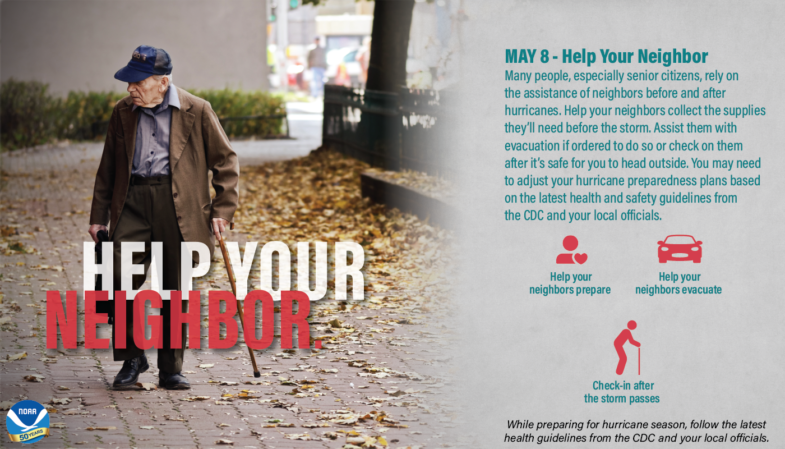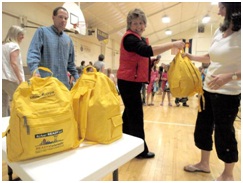SUPPORT TRACK THE TROPICS
Over the last decade plus if you appreciate the information and tracking I provide during the season along with this website which donations help keep it running please consider a one time... recurring or yearly donation if you are able to help me out...
Venmo: @TrackTheTropicsLouisiana
Website: TrackTheTropics.com/DONATE
Venmo: @TrackTheTropicsLouisiana
Website: TrackTheTropics.com/DONATE
Track The Tropics is the #1 source to track the tropics 24/7! Since 2013 the main goal of the site is to bring all of the important links and graphics to ONE PLACE so you can keep up to date on any threats to land during the Atlantic Hurricane Season! Hurricane Season 2025 in the Atlantic starts on June 1st and ends on November 30th. Do you love Spaghetti Models? Well you've come to the right place!! Remember when you're preparing for a storm: Run from the water; hide from the wind!
Tropical Atlantic Weather Resources
- NOAA National Hurricane Center
- International Meteorology Database
- FSU Tropical Cyclone Track Probabilities
- Brian McNoldy Atlantic Headquarters
- Brian McNoldy Tropical Satellite Sectors
- Brian McNoldy Infrared Hovmoller
- Brian McNoldy Past TC Radar Loops
- Weather Nerds TC Guidance
- Twister Data Model Guidance
- NOAA Tropical Cyclone Tracks
- Albany GFS/ EURO Models/ Ensembles
- Albany Tropical Cyclone Guidance
- Albany Tropical Atlantic Model Maps
- Pivotal Weather Model Guidance
- Weather Online Model Guidance
- UKMet Model Guidance/ Analysis/ Sat
- ECMWF (EURO) Model Guidance
- FSU Tropical Model Outputs
- FSU Tropical Cyclone Genesis
- Penn State Tropical E-Wall
- NOAA HFIP Ruc Models
- Navy NRL TC Page
- College of DuPage Model Guidance
- WXCharts Model Guidance
- NOAA NHC Analysis Tools
- NOAA NHC ATCF Directory
- NOAA NCEP/EMC Cyclogenesis Tracking
- NOAA NCEP/EMC HWRF Model
- NOAA HFIP Model Products
- University of Miami Ocean Heat
- COLA Max Potential Hurricane Intensity
- Colorado State RAMMB TC Tracking
- Colorado State RAMMB Floaters
- Colorado State RAMMB GOES-16 Viewer
- NOAA NESDIS GOES Satellite
- ASCAT Ocean Surface Winds METOP-A
- ASCAT Ocean Surface Winds METOP-B
- Michael Ventrice Waves / MJO Maps
- TropicalAtlantic.com Analysis / Recon
- NCAR/RAL Tropical Cyclone Guidance
- CyclonicWX Tropical Resources
Historic Louisiana Storms By Month
January
June
July
August
September
October
Hurricane Preparedness: Check On Your Neighbor
Many Americans rely on their neighbors after a disaster, but there are also many ways you can help your neighbors before a hurricane approaches. Learn about all the different actions you and your neighbors can take to prepare and recover from the hazards associated with hurricanes. Start the conversation now with these Neighbor Helping Neighbor strategies.

Thanks to NOAA for the above graphic and video! Comprehensive preparedness requires the whole community to participate and FEMA places tremendous value on communities that embrace a local "Neighbors Helping Neighbors" approach. Neighbors Helping Neighbors empowers community leaders to involve and educate individuals from their community about simple steps one can take to become more prepared. Forty-six percent of individuals expect to rely a great deal on people in their neighborhood for assistance within the first 72 hours after a disaster. When the whole community comes together to respond to and help recover from these emergencies - neighbor helping neighbor - we can often meet the needs of everyone.
Comprehensive preparedness requires the whole community to participate and FEMA places tremendous value on communities that embrace a local "Neighbors Helping Neighbors" approach. Neighbors Helping Neighbors empowers community leaders to involve and educate individuals from their community about simple steps one can take to become more prepared. Forty-six percent of individuals expect to rely a great deal on people in their neighborhood for assistance within the first 72 hours after a disaster. When the whole community comes together to respond to and help recover from these emergencies - neighbor helping neighbor - we can often meet the needs of everyone.
The Neighbor Helping Neighbor approach seeks to support state, tribal and local agencies, civic organizations, faith-based groups and other community organizations that serve the whole community. FEMA works to provide these organizations with additional tools and preparedness training opportunities so they can become more prepared. This includes Independent Study 909 - Community Preparedness: Implementing Simple Activities for Everyone and the Community Preparedness Toolkit.
Please read more about Neighbors helping Neighbors over at Ready.Gov!

Thanks to NOAA for the above graphic and video!
Neighbors Helping Neighbors Through Preparedness
 Comprehensive preparedness requires the whole community to participate and FEMA places tremendous value on communities that embrace a local "Neighbors Helping Neighbors" approach. Neighbors Helping Neighbors empowers community leaders to involve and educate individuals from their community about simple steps one can take to become more prepared. Forty-six percent of individuals expect to rely a great deal on people in their neighborhood for assistance within the first 72 hours after a disaster. When the whole community comes together to respond to and help recover from these emergencies - neighbor helping neighbor - we can often meet the needs of everyone.
Comprehensive preparedness requires the whole community to participate and FEMA places tremendous value on communities that embrace a local "Neighbors Helping Neighbors" approach. Neighbors Helping Neighbors empowers community leaders to involve and educate individuals from their community about simple steps one can take to become more prepared. Forty-six percent of individuals expect to rely a great deal on people in their neighborhood for assistance within the first 72 hours after a disaster. When the whole community comes together to respond to and help recover from these emergencies - neighbor helping neighbor - we can often meet the needs of everyone.
The Neighbor Helping Neighbor approach seeks to support state, tribal and local agencies, civic organizations, faith-based groups and other community organizations that serve the whole community. FEMA works to provide these organizations with additional tools and preparedness training opportunities so they can become more prepared. This includes Independent Study 909 - Community Preparedness: Implementing Simple Activities for Everyone and the Community Preparedness Toolkit.
Please read more about Neighbors helping Neighbors over at Ready.Gov!
Complete Hurricane Preparedness Guide:
Determine Your Risk
Develop An Evacuation Plan
Assemble Disaster Supplies
Secure An Insurance Checkup
Strengthen Your Home
Check On Your Neighbor
Complete Your Written Hurricane Plan
Develop An Evacuation Plan
Assemble Disaster Supplies
Secure An Insurance Checkup
Strengthen Your Home
Check On Your Neighbor
Complete Your Written Hurricane Plan

 DONATE
DONATE